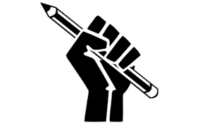Careful readers will note that I haven’t been on this blog lately. There’s always an excuse, but this time it’s a pretty good one. Since my last post, when I was running back-to-back meetings and workshops in Singapore, I’ve returned to Cambodia for one last week before making the very long trek back to the States. The re-entry was more fraught than anticipated. We were in a car crash the night we arrived home, and although my husband and I are now fine, it did make the month of May pretty awkward and stopped me from getting back to work as quickly as I had hoped.
But I’m here now and find myself trapped in a three-way fight for which of my countries (adopted or otherwise) is experiencing the bigger political upheaval. The US is, of course, inundated with Trump and his tweets, his threats and his scandals. But there is also this week’s UK election, which is looking to be closer than anticipated, and just as disturbing. And there’s also the upcoming Cambodian elections, where the ruling party is threatening those who support the opposition, and the prospect of violence hangs in the air. As a writer, I have to wonder, what can I do about all this? What, if anything, am I obliged to do?
I was thinking about this back in Singapore, where I had the great pleasure of leading a workshop for the Singapore Writers’ Group. I gave my talk the title:
The Role of the Writer in a Hyper-Politicised World
We then spent the evening discussing what this role might be, and experimenting with various techniques for bringing politics into our writing, even if we don’t want to. Below is the hand out I prepared, filled with questions and some fascinating quotations. There are no answers here. But very often, just asking the question can be powerful enough. Do let me know if you have any comments or ideas to share.
_______________________________________
There has been a great deal written lately, especially after the UK’s Brexit vote and the recent US presidential election, about the role of the writer. Some feel the need to use their writing as a platform for political activism, others don’t. The quotations below offer reflections on this subject from writers of various genres at various stages of their careers. As you read them, have the following questions in mind: Is there a way to write about politics without being political? What does political/politics mean? When do we censor ourselves? What is the purpose of our own writing? And finally, given our own answers to these questions, what are some techniques we can employ as writers to bring political truths into our own work?
- From playwright, Leo Richardson, re writing the ‘Poles Go Home’ episode of the UK continuing drama, Eastenders:
‘Now, more than ever, in a divided world, it is the job of artists, of writers, of TV comedy and drama, not only to entertain us, but to reflect the things happening in our world, on screen. To show us not only what is familiar, but also wildly different. To reflect the lives of people who are underrepresented, so we can understand those who we didn’t before.
If getting a brief glimpse into the mind of a man struggling to find his place in the country he lives in makes you uncomfortable then perhaps you needed to see it.’
2. From playwright Arthur Miller:
‘I think the job of the artist is to remind people of what they have chosen to forget.’
3. From Singer/Songwriter Tom Waits, in ‘Three Iconic Musicians on Artistic Creation — and Its Importance Now’ (The NY Times, 1 March 2017)
‘Everything is somewhat political…As humans, we are always trying to make meaning out of something. Whether it’s tracks in the snow or a voice that you can barely hear or a song that you only half-remember, we are all trying to make meaning out of it. And then operate from that meaning.’
4. From poet Adrienne Rich in a 2011 interview with The Paris Review
‘I don’t know that poetry itself has any universal or unique obligations. It’s a great ongoing human activity of making, over different times, under different circumstances. For a poet, in this time we call “ours,” in this whirlpool of disinformation and manufactured distraction? Not to fake it, not to practice a false innocence, not pull the shades down on what’s happening next door or across town. Not to settle for shallow formulas or lazy nihilism or stifling self-reference.
Nothing “obliges” us to behave as honorable human beings except each others’ possible examples of honesty and generosity and courage and lucidity, suggesting a greater social compact.
5. From singer/songwriter Leonard Cohen in “Three Iconic Musicians on Artistic Creation — and Its Importance Now” (NY Times 1 March 2017)
‘…A reporter asked Cohen about one of the lyrics from the new record’s title song, “You Want It Darker,” in which Cohen sing-speaks, “Hineni, hineni, I’m ready my Lord.” A Hebrew word that appears in the Old Testament, hineni — הנני : “Here I am” — is said by Moses and Abraham and Isaiah when God appears to ask something of each of them. It’s a declaration not of location but of disposition, of willingness. The reporter wanted to know from Cohen about the moment that inspired the line. “I don’t really know the genesis, the origin,” Cohen began. “That ‘hineni,’ that declaration of readiness no matter what the outcome, that’s a part of everyone’s soul. We all are motivated by deep impulses and deep appetites to serve, even though we may not be able to locate that which we are willing to serve. So, this is just a part of my nature, and I think everybody else’s nature, to offer oneself at the critical moment when the emergency becomes articulate. It’s only when the emergency becomes articulate that we can locate that willingness to serve.’

Recent Comments